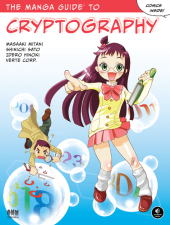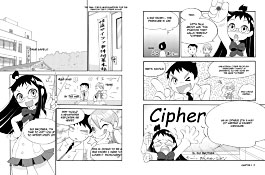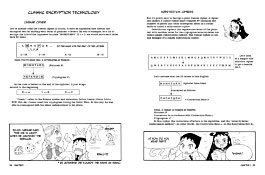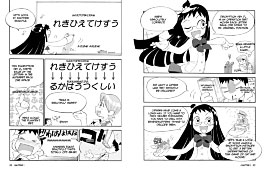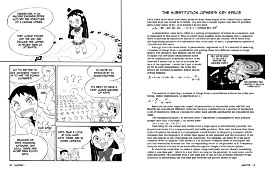Prologue
1 The Foundations of Encryption
2 Symmetric-Key Algorithms
3 Public-Key Encryption
Practical Applications of Encryption
What Next?
Epilogue
The Manga Guide to Cryptography
Look Inside!
Cryptography is hard, but it’s less hard when it’s filled with adorable Japanese manga. The latest addition to the Manga Guide series, The Manga Guide to Cryptography, turns the art of encryption and decryption into plain, comic-illustrated English.
As you follow Inspector Jun Meguro in his quest to bring a cipher-wielding thief to justice, you’ll learn how cryptographic ciphers work. (Ciphers are the algorithms at the heart of cryptography.) Like all books in the Manga Guide series, The Manga Guide to Cryptography is illustrated throughout with memorable Japanese manga as it dives deep into advanced cryptography topics, such as classic substitution, polyalphabetic, and transposition ciphers; symmetric-key algorithms like block and DES (Data Encryption Standard) ciphers; and how to use public key encryption technology. It also explores practical applications of encryption such as digital signatures, password security, and identity fraud countermeasures.
The Manga Guide to Cryptography is the perfect introduction to cryptography for programmers, security professionals, aspiring cryptographers, and anyone who finds cryptography just a little bit hard.
"If you're just curious about cryptography or need a simple jumping-off-point, this book is a good place to start."
—Sequential Tart
"Extremely accessible, ideal for both classroom use or self-study, and highly recommended for high school, college, and public library mathematics collections."
—Midwest Book Review

